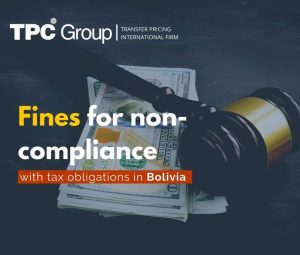Seen from Peru
On January 1, 2004, the Agreement to avoid Double Taxation between Peru and Chile and prevent tax evasion related to income and wealth taxes entered into force.
Article 2 of the DTA between Peru and Chile indicates that the current taxes to which the Double International Taxation Agreement applies are:
- Peru, the taxes established in the Income Tax Law under SUNAT (Superintendencia Nacional de Aduanas y de Administración Tributaria – National Superintendence of Customs and Tax Administration).
- Chile, the taxes established in the Income Tax Law under the SII (Servicio de Impuestos Internos – Internal Revenue Service).
- As other DTAs signed by Peru, the Chilean one is under the OECD guidelines with certain differences, the most significant of which will be described below.
Residence
Article 4.3 of the Peru-Chile DTA states that if there is a problem of double residence of a legal person, the way to solve it will be to consider it as a resident only of the State of which it is national.
According to Article 3(i)(II) of the DTA with Chile, the term “national” means any legal person constituted or established under the laws in force of a Contracting State, i.e., it considers the place of incorporation of the legal person to be considered as a national of that State.
If the person is a national of both States or neither of them or if this cannot be determined, the DTA provides that the States shall endeavor to resolve it through a mutually agreed procedure.
If such an agreement is not reached, the legal entity will not be able to take advantage of the benefits thereof, and therefore, double taxation would exist in Chile, implying that in the absence of a common agreement between Peru and Chile regarding the residence of a given legal person, the methods to solve double taxation and the reduced rates in the country of the source country regarding passive income provided for in the DTA will not be applicable.
Permanent Establishment
First, the Peru-Chile DTA also incorporates assembly and supervision activities regarding construction or installation works or projects. Likewise, the term to be considered as a permanent establishment is six months.
Second, a new case of temporary Permanent Establishment is incorporated, which is usually known as Permanent Establishment for Services.
Thus, Article 5(3)(b) of the Peru-Chile DTA states that the term “permanent establishment” also includes the provision of services, including consulting services by an enterprise of a Contracting State through employees or other persons assigned by this for that purpose, but only if such activities continue for more than 183 days in any 12 months. This is a very important case, particularly because we are dealing with exports of services.
Thus, the export of services can give rise to a Permanent Establishment simply by taking into account the duration, without the need for a fixed place of business or a dependent agent, provided that the service is performed by workers assigned by the company for this purpose.
In addition, it should be considered that Article 5(3)(c) of the Peru-Chile DTA states that the activities carried out by related companies should be included to calculate the six months in the case of construction works or projects or 183 days for the provision of services, provided that such activities are identical or substantially similar to those of the company, as well as if they are carried out in connection with the same work or project or rendering of services.
Software licenses and services
The payment of services of different nature to a company domiciled in Chile will not suffer any withholding at the source since the Chilean company will pay its income tax in its jurisdiction. This does not apply to the payment of licenses for software or applications, whereby the benefit of the DTA is the shared taxation, withholding the Peruvian company 15% for non-domiciled income tax in these cases, being the annual rate of the income tax in Peru 29.5 %.
Dividends
A shared taxation rule is established in both Contracting States for dividend distributions. Nevertheless, a maximum limit is established when dividends are paid by a Contracting State to a beneficial owner of another one. In this case, the Peru – Chile DTA establishes limits to the tax rates of 10% when the beneficial owner is a company (other than a partnership) directly owning at least 25% of the voting shares of the Peruvian resident company paying the dividends, being 15% in other cases.
Interest
Article 11 also establishes a shared taxation rule, such as a maximum rate in the country of origin of the interest (country of the source), whose limit is 15% for Peru – Chile DTA.
Royalties
The Peru – Chile DTA establishes a shared taxation rule for both the State of residence and the State of the source. However, it limits the tax rate to 15%.
Likewise, according to numeral 3 of Article 12 of the Peru – Chile DTA, the term “royalties” also includes payments for the use or right to use industrial, commercial, or scientific equipment.
It should be noted that a Certificate of Residence is required to enjoy the benefits of the Peru-Chile DTA. Therefore, the corresponding procedure must be carried out before the SUNAT; otherwise, it is not possible to apply the DTA and, the general regime must be applied.
In the Peruvian case, the requirement to have a Certificate of Residence to receive the DTA benefits is set forth in Supreme Decree No. 090-2008-EF. According to said regulation, the Certificates of Residence issued by competent entities in other countries are valid for 4 months from the date of issuance, having to be filed within the said term to avail of the benefits of a DTA. Otherwise, Article 2 of the aforementioned Supreme Decree states that DTA benefits should not be considered. Additionally, this criterion has been ratified by SUNAT in Reports No. 012-2014-SUNAT/4B0000 and 094-2015-SUNAT/5D0000.
Source: TPC Group




